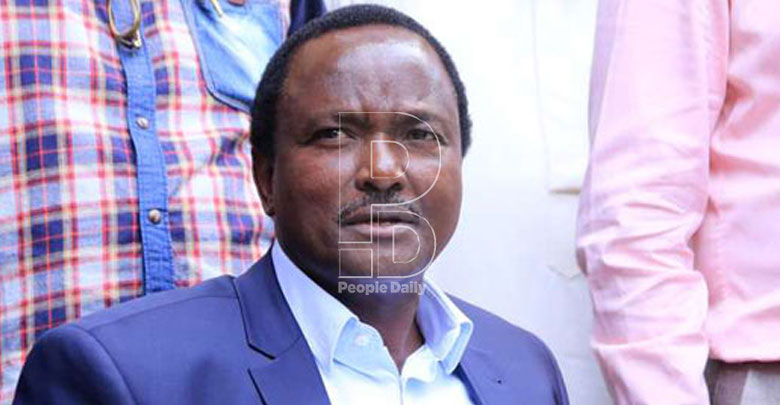Raila accuses Nasa colleagues of betrayal during mock oath
By Oscar Obonyo, September 27, 2019Opposition leader Raila Odinga has accused fellow Nasa co-principals Kalonzo Musyoka, Musalia Mudavadi and Moses Wetang’ula of betraying him during the controversial mock-swearing in in January 30, 2018 as the “people’s president”.
Saying that was the second betrayal, the ODM leader said the first was when opposition colleagues Mwai Kibaki and Charity Ngilu failed to join him in protest against the swearing-in of President Daniel arap Moi after the 1997 General Election, in which the opposition had lost to the incumbent.
“You are aware of how I was deserted by Nasa colleagues during my swearing in ceremony as the People’s President at Uhuru Park. Well, that was just Part Two of the betrayal. Uhuru Park Part One happened in 1997, when Kibaki and Ngilu abandoned me in staging a protest march to Uhuru Park during Nyayo’s (Moi) swearing-in ceremony,” Raila said.
Delivering a lecture at the University of Nairobi on Tuesday night during the launch of Kisumu Governor Anyang’ Nyong’o’s book, Presidential or Parliamentary Democracy in Kenya?: Chances to Be Made, Raila pleaded with political players not to chicken out of the Building Bridges Initiative and negotiate for a better Constitution and electoral justice.
“Let us never negotiate out of fear. But let us never fear to negotiate,” said the former Prime Minister, quoting former US President John F Kennedy.
Spectators
He argued that the BBI was not about creating positions for a few people, but rather promoting cohesion and ensuring inclusion of all communities in government.
“I have heard some people claim that BBI will create positions for five people from big tribes and exclude other Kenyans. But even if that were the case, wouldn’t it be better considering that now only two communities are sharing power and the rest are mere spectators?” posed Raila.
Speaking in Narumoru, Nakuru county, early this month, Ruto dismissed the attempts to change the Constitution as ridiculous.
“If you say you want to change the Constitution so that you can have five positions for five communities, what will happen to the rest of the communities?” asked the DP.
Speaking at the launch of his book, Nyong’o said the 2010 Constitution was “fairly good” only that the authorities were reluctant to fully execute it.
“We are talking about a Constitution without constitutionalism or a Constitution with neither constitutionalism nor constitutionalists,” he said.
In his book, Nyong’o argues that the presidential system destroys parties.
Devolution
Meru Governor Kiraitu Murungi said the presidential system was not conducive for devolution. He said devolution would thrive under a parliamentary system.
“As the Council of Governors, we feel oppressed by financial imperialism that denies us financial autonomy. Separately, presidential elections are a tribal conflict where ethnicity is sharpened during voter mobilisation. We are pushing for an arrangement where we have a president, prime minister and two deputies,” said Kiraitu.
But former Imenti Central MP Gitobu Imanyara said the problem was not a parliamentary or presidential system, but the challenges of implementing the current Constitution. He warned against the push for a referendum and called for an audit the current system.
Constitutional expert Yash Pal Ghai said an analysis of the shortcomings of the 2010 Constitution is necessary before a decision is made on whether to review it or not.
“For instance, we need a President who enjoys some reasonable amount of powers not one who is just a symbol of unity,” he said.
Senate Leader of Minority James Orengo described the current Constitution as a “ceasefire document”.
“We simply ended up with a document, which enabled us to resolve the political impasse of the moment so we can move on to the elections,” he said.
